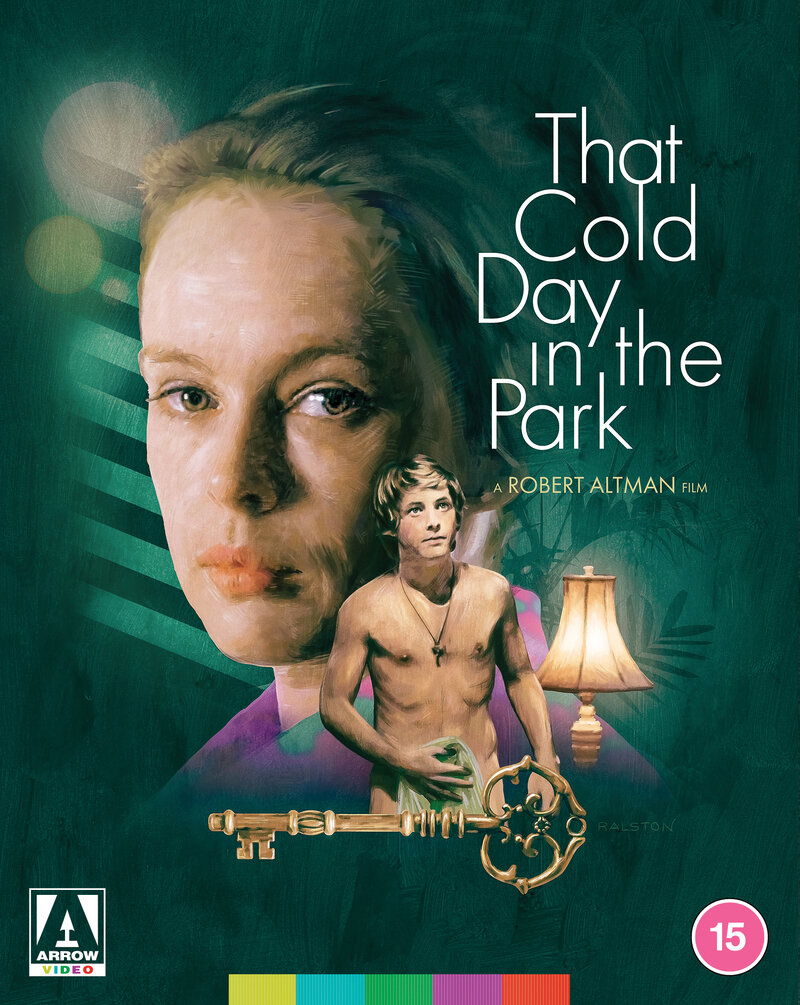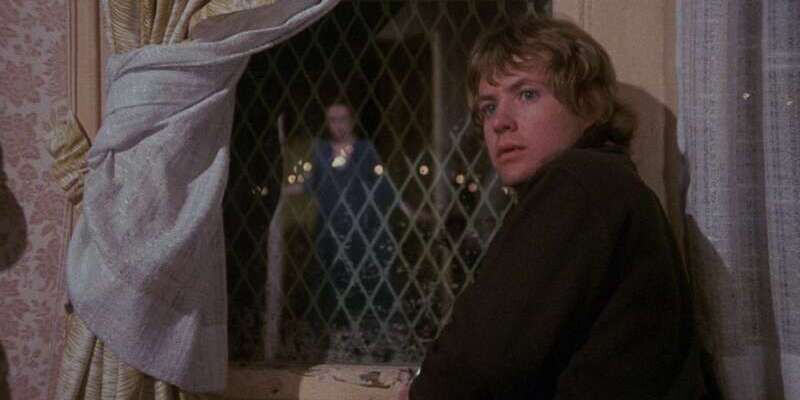
Review by
Eric Hillis
Directed by: Robert Altman
Starring: Sandy Dennis, Michael Burns, Susanne Benton, Luana Anders, John Garfield Jr., Michael Murphy

"I'm young at heart!" "50 is the new 30!" "You're only as young as you
feel!" We can delude ourselves as much as we want regarding the aging
process but the harsh truth is that even if you're in the improbably good
shape of a Tom Cruise or Jennifer Lopez, and even if you're the envy of your
peers, you're not fooling the young. To the young, anyone over 30 is over
the hill. You might pride yourself on being a 40-year-old with the physique
of a competitive swimmer, but all young people will see are wrinkles and
sagging flesh. Well at least those of us who no longer have our youth can
console ourselves with the fact that we're currently living in an age when
it sucks to be young, when young people are forced to live indefinitely with
their parents thanks to the western world's housing crisis and inaffordable
rents. Maybe being an old fart isn't so bad.
Imagine how awful it must have been to be an old fart in the 1960s though,
a time when it was great to be young. You've got to feel for all those poor
bastards who spent their 17th birthday storming a beach in France under a
hail of bullets, only to see their sons celebrate their 17th birthday at a
rave-up surrounded by mini-skirted dollybirds, tuning in and dropping out to
the groovy hit sounds of beat combos. The late '60s saw a wave of (mostly
British) psycho-thrillers in which the villains were often above a certain
age while their victims were youngsters. You have to wonder if the
filmmakers weren't exorcising their resentment at having missed out on this
glorious time to be young. It's telling that we didn't get similar movies
from the US at this time, as being a young man in 1960s America was
tantamount to a death sentence thanks to the Vietnam draft. I imagine a lot
of young American men wished they were 40 in the '60s. The youth of America
were to be pitied rather than envied, unlike the young hepcats of swinging
sixties Britain.

Robert Altman's 1969 film That Cold Day in the Park is
the closest the US got to emulating those mean-spirited British thrillers of
the era, though it's shot and set in Vancouver. That Canadian city's
constant rain, general bleakness and ex-pat community might even fool a
viewer into believing they're watching a British film. Altman's film
(scripted by British writer Gillian Freeman from a book by
Richard Miles) deals with a very British preoccupation, that of
repression, as embodied by Sandy Dennis's spinster Frances. We're
never told Frances's age but Dennis was a mere 31 at time of filming. But in
1969 being 31 probably felt like being 60 today. Frances lives a drab life
and it's clear the swinging '60s passed her by (if it even happened in
Canada). She's surrounded by old people, as though she inherited the family
of a dead spouse. An aging doctor (Edward Greenhalgh) fancies taking
her as a wife, but Frances finds him repulsive.
While hosting a dinner party for her circle of old fogeys, Frances become
enamoured with a teenage boy (Michael Burns) she sees sitting on a
bench in the rain in the park opposite her apartment. When the guests leave
she invites the boy (who remains nameless throughout) into her home, runs
him a bath and offers him food. The boy refuses to speak but engages in a
slapstick dance. With his mop of blond curls, the boy resembles a sinister
Harpo Marx with his mute antics. The silence is filled by Frances talking
incessantly in a nervous manner. After tucking the boy into a spare bed,
Frances locks the door, but the boy departs through the window and visits
his hippy sister Nina (Susanne Benton) and her draft-dodging American
boyfriend Nick (John Garfield Jr.) on their houseboat. Turns out the
boy isn't mute at all, it's simply an act, one which Nina claims he's been
pulling off since childhood. Rather than steering clear of the obviously
deranged Frances, the boy returns, but his motives for doing so are
unclear.

Frances' motives for keeping the boy in her home are all too clear however.
It's obvious she sees him as a cure for her sexual frustration, even
visiting a family planning clinic to have a diaphragm fitted in preparation
for some grand seduction. But just as she's repulsed by her doctor suitor's
advanced age, the boy has no interest in hooking up with a woman in her
thirties.
Critics at the time of That Cold Day in the Park were
unreceptive to its cynicism, likely because it was so fresh they simply
didn't know what to make of it. We've now become accustomed to films by the
likes of Lars von Trier and Michael Haneke featuring psychologically
troubled women being put through the ringer (some would say tortured by the
filmmakers), but in 1969 there simply weren't many characters like Frances
on screen. It wasn't Altman's first film but it's the first recognisably
Altman film, establishing some of his trademarks. When Altman's camera
drifts away from his leading lady to eavesdrop on conversations held by
background figures, 1969 audiences were likely stumped as to why a filmmaker
would do such a thing. They may have surmised that Altman was highlighting
the lives being lived on the lonely Frances' periphery, but now we know it's
simply what Altman does. Altman's ability to quickly establish a dynamic
with an economic setup is on display here, particularly in an impressive
scene when the boy returns to his family home and the camera remains outside
the house. We can't hear what's being spoken inside but what we observe
through the windows tells us that the boy puts on a very different front for
his parents than in while in the company of Frances and Nina.

With Altman now associated primarily with his ensemble dramas (to the
degree that the Independent Spirit Award for Best Ensemble is named in the
director's honour), it's easy to forget how many great individual lead
performances his early films featured. Dennis was never better than she is
here. She makes her Frances both terrifying and sympathetic, perhaps the
closest a female performer has come to replicating Anthony Perkins' career
defining turn as Norman Bates. There's not much to like about Frances and
yet we feel a crushing sympathy for the character, and the more pathetic she
acts the more difficult it becomes to watch her descent into madness.
If you have any anxiety regarding growing old,
That Cold Day in the Park will prove a deeply uncomfortable
experience. Through the words and actions of both the boy and Frances, we're
constantly reminded of how negatively we're viewed by those younger than us.
In an early attempt to impress the boy, Frances puts on a record she
believes he'll enjoy, but behind her back he rolls his eyes at how out of
touch she is with his generation's tastes. Later Frances delivers a
monologue about how unattractive she finds the doctor, describing in detail
how his old man smell turns her off. It's absolutely brutal. In his
contemporary review, Roger Ebert panned the film for not being a
conventional horror movie (was any mainstream critic so wrong so often?
*cough* Mark Kermode *cough*), but if you're over 30
That Cold Day in the Park is as disturbing and unsettling as
any explicit piece of body horror. It's as occupied with the limits of the
flesh as anything by Cronenberg or Barker.

